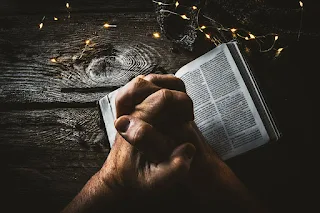Fasting and Praying: The Power to Change History
Throughout history, fasting and praying have been powerful spiritual practices employed by individuals and communities to bring about significant change. These acts of devotion have transcended religious traditions, serving as a means to seek divine intervention, promote personal transformation, and unite people in times of crisis. From biblical events to modern-day movements, the combination of fasting and prayer has played a pivotal role in shaping the course of history.
Fasting and Prayer in Religious History
Fasting and prayer are deeply rooted in many religious traditions, such as Christianity, Islam, Judaism, and Buddhism. In the Bible, we find numerous instances where these practices led to monumental shifts. For example:
Moses' Fast on Mount Sinai: Moses fasted for 40 days before receiving the Ten Commandments (Exodus 34:28). This pivotal moment marked the foundation of Jewish law and ethics, shaping the moral framework of not only the Israelites but also influencing Western civilization.
Esther’s Fast: When the Jewish people faced extermination in the Persian Empire, Queen Esther called for a three-day fast and prayer (Esther 4:16). Her courageous actions, coupled with divine intervention, saved her people from destruction, changing the course of their history.
Jesus’ 40-Day Fast: Before beginning his ministry, Jesus fasted for 40 days in the wilderness (Matthew 4:1-2). This period of fasting and prayer prepared him for his role as the Messiah and laid the groundwork for the spread of Christianity throughout the world.
In Islam, fasting during Ramadan is a fundamental pillar of faith. Muslims fast from dawn until sunset, using this time to deepen their relationship with God through prayer and reflection. This annual spiritual renewal strengthens communities and has been a powerful force for unity throughout Islamic history.
Fasting and Prayer in Modern History
Even in more recent times, fasting and prayer have proven to be transformative forces in shaping historical events:
Gandhi’s Fasts: Mahatma Gandhi employed fasting as a nonviolent form of protest during India’s struggle for independence from British rule. His fasts were often combined with prayer, and they drew global attention to India’s plight. Gandhi’s spiritual resolve inspired millions and played a critical role in the eventual liberation of India in 1947.
The Civil Rights Movement: Leaders like Martin Luther King Jr. often called for prayer and fasting during the American Civil Rights Movement. Many African-American churches used fasting and prayer to strengthen their resolve against injustice. Their faith-driven activism helped to dismantle segregation and advance civil rights in the U.S.
World War II Miracle: During the Second World War, King George VI of England called for a national day of prayer before the Dunkirk evacuation, when British troops were trapped by advancing German forces. After this call for divine assistance, a series of favorable events, including the calming of seas and unexpected decisions by German commanders, allowed for the successful evacuation of over 300,000 soldiers. Many viewed this as a miracle and credited prayer as the catalyst that changed the course of the war.
The Spiritual and Psychological Power of Fasting and Prayer
Fasting and prayer are not just about seeking divine intervention—they also foster personal and communal transformation. Fasting brings physical discipline and clarity, stripping away distractions and allowing individuals to focus on their spiritual goals. Prayer strengthens the bond between individuals and their Creator, providing inner peace, hope, and resilience in times of turmoil.
When practiced together, fasting and prayer have the power to unite people, inspire hope, and bring about change. History has shown that when communities come together in prayer and fasting, they often emerge stronger, with renewed purpose and vision.
Conclusion
The historical examples of fasting and prayer underscore their transformative power. Whether in biblical times or modern history, these spiritual practices have altered the course of nations, helped people overcome seemingly insurmountable odds, and brought about divine intervention in critical moments. Fasting and prayer remain timeless tools for those seeking change, both personally and in the world around them.


No comments:
Post a Comment
Note: Only a member of this blog may post a comment.